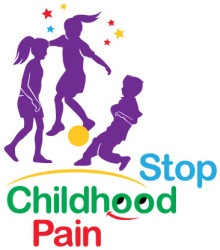A resource for your child with amplified pain

I see very few children in my practice. We tend to help divert children to paediatric rheumatologists so they get specialised care by people who know what they are doing and who are skilled at dealing with the parent-child dynamic.
Most years, I do however see a couple in their late teens with funny pain disorders, usually very much investigated by the GPs, often having already seen a range of specialists (perhaps a sports physician or an orthopaedic doctor), or a range of allied health professionals. The diagnosis is typically unclear. There’s a lot of family angst and suffering.
Chronic musculoskeletal pain is uncommon in children/teenagers and should be taken seriously. However, the vast majority I have to assess do not have an autoimmune disorder.
They have a complicated widespread pain disorder, sometimes with strange postures developed, or a stated inability to do the things they normally do, such as playing an instrument or being involved with sport.
Usually, warning bells ring when I find out how much school is being missed.
The purpose of this post is to highlight that amplified pain disorders do exist in children.
I’ve just attended our Australian Rheumatology Association’s annual scientific meeting and listening to the talk by Dr David Sherry made me want to share this resource.
I don’t pretend to be good at managing these situations so it was great to hear about this website that seems a useful resource for the child suffering with debilitating pain, the child’s parents and the treating professionals.
Check out http://stopchildhoodpain.org

It’s bookmarked and I think I’ll be referring to it.

